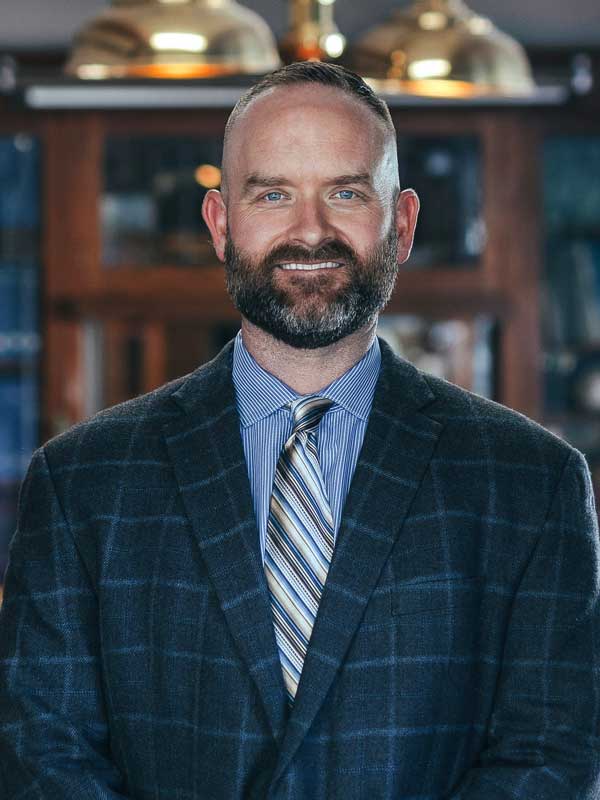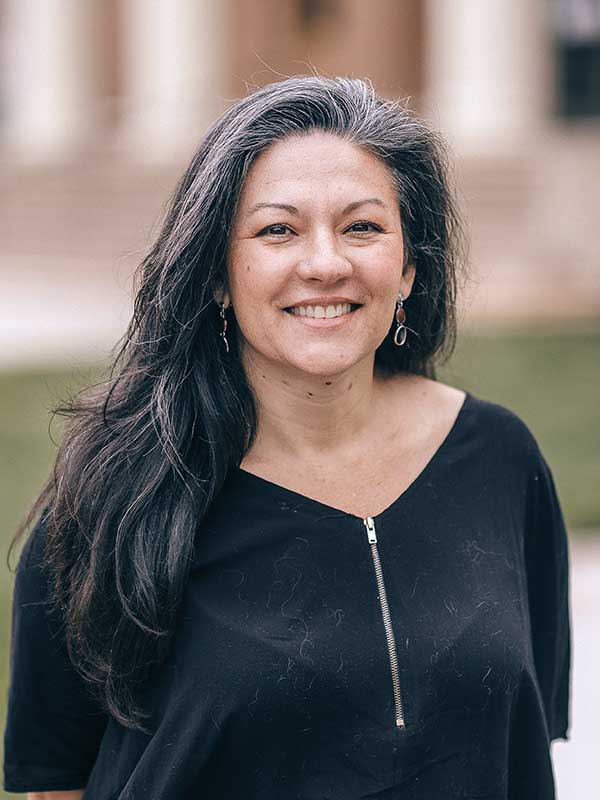Estate Planning Group
Guardianship • Will • Trust • Financial Power of Attorney • (POA) Durable Power of Attorney (POA) • Advance Healthcare Directive (AHCD) • Beneficiary Designations • Succession Plan
Estate Planning Group Legal Team
Attorneys - California - Hawaii - Remote Offices
Daniel J. Knight
Principal Attorney –
Hawaii, California, and Texas

A “born & raised” San Luis Obispo County native, Dan feels privileged to be an active part of such a strong and vibrant community and to have grown up learning its ins and outs, institutions, relationships and interrelationships.
Show More
Dan started his career by working in his father’s construction business; gaining knowledge from experienced tradespeople about the “right” ways to construct foundations, build residential/commercial structures, and work in the public right-of-way. During high school Dan worked at Pete’s Automotive in Morro Bay, California.
After graduation from high school, Dan started his own one-person
general construction business and, through hard work and tenacity, grew it into a full-service general building and general engineering company. At the same time, Dan went back to school, earned both a bachelors and master’s degree in accounting, and then continued to and graduated from law school, passed the bar and began his career as a licensed attorney. Along the way Dan also obtained his real estate broker’s license.
Dan lives in Atascadero with his wife Shawn (married in 2013), and three precocious children. When not working, Dan enjoys playing rugby at the Prop or Lock positions, weightlifting/kettle bell workouts, endurance backpacking and other outdoors activities. Dan’s goal in his hobbies is to push the body hard enough that it becomes both a physical and mental test of discipline.
Dana Ainsworth
Administrative Manager

Dana is a multi-tasking powerhouse and makes solving complex administrative problems look easy.
Show More
Dana has variously worked as her husband Craig’s legal assistant in his estate planning and probate administration practice for the last 15 years. For the last 8 years, she has also worked integrally in developing and growing a multi-million dollar general contracting firm, shepherding its growth from a small family business. Dana was born in Saigon, Vietnam one month before the 1975 evacuation of American personnel. She is a lifetime California resident, having lived in San Luis Obispo for the last 25 years. She has one daughter, Alexis, who is the center of her universe. Dana developed early on in her professional career extraordinary administration skills that have served her employers well. She has worked in several attorneys’ offices and insurance agencies, as well as for the Superior Court.
Thomas Kommer
Paralegal

Tom, a legal professional with a robust background in construction, human resources and risk management. Originally from Los Angeles County California, relocated to San Luis Obispo County California in 2015.
He holds a Bachelor’s degree in Business Administration/Marketing from San Diego State University (1990), a Juris Doctor from Concord Law School at Purdue University Global (2011), and a Higher Education Teaching Certificate from Harvard University’s Derek Bok Center for Teaching and Learning (2021).
Show More
With nearly 25 years in construction, human resources and risk management, he transitioned to academia and legal work in 2016. Tom consults on construction matters and contributed to rewriting the Preconstruction Risk Assessment and Infection Control Risk Assessment certification exam for Green Advantage.
Tom serves as a paralegal at the law offices of Daniel J. Knight APLC and is studying for the California Bar.
Frequently Asked Question Regarding Estate Planning
FAQ
What is estate planning?
Estate planning is the process of organizing one’s personal and financial affairs in a way that maximizes the enjoyment of assets during life and how they are to be distributed upon death. An estate plan ensures that your final property and healthcare wishes are honored, and that your loved ones are taken care of when you are no longer able to care for them. Estate planning may include more than just a will as you may choose to create a trust. A proper estate plan may include additional financial, tax, medical, and business planning as well.
What type of assets are in an estate?
Your estate may consist of personal property, real property, and financial assets. Financial assets may include bank accounts, life insurance proceeds, retirement accounts, payments owed to you or stocks and bonds. Your estate may also include personal effects such as furniture, cars or jewelry. These assets can be in your name or held in joint title with another individual.
Who benefits from having an Estate Plan?
Everyone, regardless of the size of their estate, needs an estate plan. An estate plan allows you to designate someone to manage your assets if you are unable to do so, make health care decisions for you or your dependents, and decide how you want your property distributed.
If you fail to make an estate plan, a judge will simply appoint someone to handle your assets and they will be distributed to your heirs according to California law. Estate planning allows you much greater control and flexibility for handling your assets and property.
How Can an Estate Plan Help Me?
Estate planning can help you by developing a plan for the distribution of your business, home, and personal property upon your death. For example, your estate plan may include how you want to use and manage your business, investments, real property (such as a home) and personal property (such as family heirlooms, jewelry, cars, etc.) during your life, and what happens to these items upon your death.
An estate plan will help you plan for a certain family member, or friend, to receive your home or a specific sentimental object upon your death. If you prefer that your estate be divided equally among certain individuals or pass entirely to charity, you can organize your estate with your attorney to plan for this. In addition, estate planning can be used to protect your assets upon a divorce or dissolution of a domestic partnership, protect your assets in the event of a bankruptcy, and minimize the impact of taxes. Moreover, estate planning allows you to plan for your own care, or the care of a minor child, if you become unable to care for yourself. You can also provide detailed instructions about if and when life support should be used to keep you alive and whether or not you would like to be an organ donor. You can also appoint a specific person to replace you as the primary caregiver for your minor child.
What are some questions I should consider in order to determine whether to hire an attorney?
Before an attorney can create an estate plan tailored to your specific needs, you need to have a basic understanding of what you want to achieve with your estate plan. These questions may help you determine how you would like your assets distributed:
- What are my assets and what are they worth?
- Who should be my beneficiaries?
- When should my beneficiaries receive my asset(s)?
- Who would I like to take care of my minor children in the event I am unable to do so?
- Who would I like to be responsible for my personal care if I am unable to care for myself?
- What would I like to be done with my remains upon my death?
- Where would I like to be laid to rest, buried, or have my ashes scattered?
What might happen if do not have a Will or an Estate Plan?
If you pass away prior to the creation of an estate plan or will, your estate passes according to California’s law of intestacy. Under the intestacy laws, all of your community property (most property acquired during marriage) will be distributed first to your spouse or domestic partner. Your spouse or domestic partner also receives part of your separate property (property owned solely by you), and your children, grandchildren, parents, siblings, and other relatives may also share in your separate property.
If you have no spouse or domestic partner, all of your property will be distributed to your children or grandchildren, parents, siblings, or other relatives. Friends, non-registered domestic partners, and organizations will not be entitled to any part of your estate. The California intestacy law leaves you with no choice as to how your property should be distributed or who receives each asset. The State of California is the beneficiary of your estate only if you die leaving no living relatives.
What is are an Irrevocable Trust?
An irrevocable trust is a trust that cannot be changed or revoked once it has been created. These Irrevocable trusts are usually tax-sensitive documents. A few examples would be irrevocable life insurance trusts, irrevocable trusts for children, and charitable trusts.
Please complete and submit the form below so we can contact you to schedule your consultation or you may contact us directly if you prefer to set up your a consultation over the phone.
Submission of this form does not create an attorney-client relationship. Do not include any sensitive information in this form. Include general information and parties only. A condition of scheduling your consultation will include performing a conflict-of-interest check by The Law Offices of Daniel J. Knight, a Professional Law Corporation.
